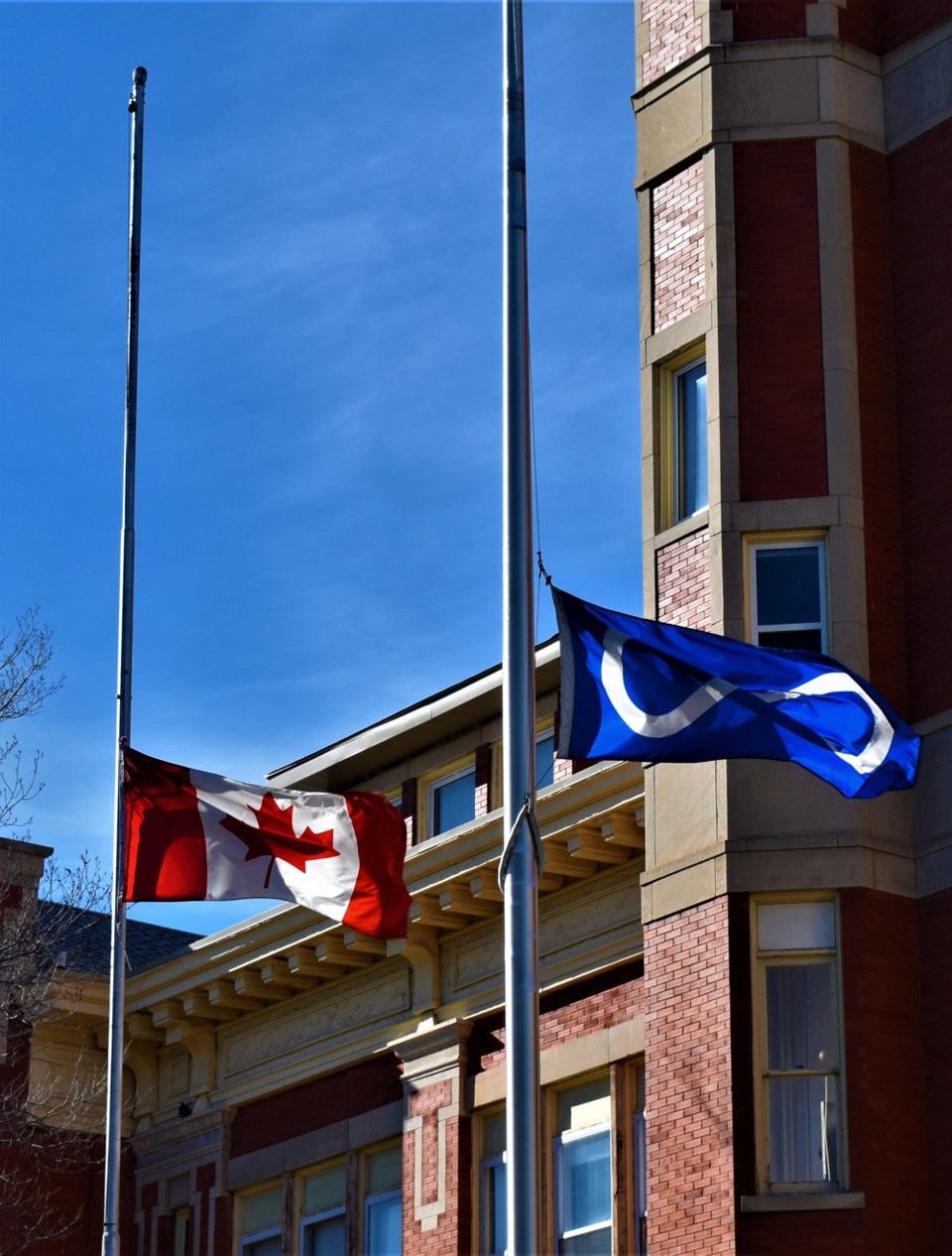SASKATOON — For years, Métis survivors of the Île-à-la-Crosse Boarding School struggled with their lives. Their stories of abuse and the horrors they experienced were often ignored, and the remaining survivors and their families are still waiting to get compensation.
The Île-à-la-Crosse boarding school was in operation for more than 100 years where it housed Indigenous children from northern Saskatchewan, many of whom were of Métis descent.
While other survivors of residential schools and their families have already received compensation through the Indian Residential Schools Settlement Agreement, those who attended Île-à-la-Crosse who are still living today were omitted.
However, a memorandum of understanding between the Canadian government and a committee representing Île-à-la-Crosse Boarding School survivors was signed in 2019 to begin discussions on the school’s legacy. The discussions must be finalized while there are still survivors living.
This is why Métis Nation Saskatchewan vice-president Michelle LeClair said that being part of the Indigenous delegation that had separate meetings with Pope Francis gave the world the chance to hear the stories from the Métis perspective.
Métis stories were largely ignored or forgotten, with historic compensation agreements also often omitting survivors, their families and communities.
LeClair joined Elders Emilien Janvier and Antoinette LeFleur in representing the Métis of Saskatchewan, as part of the entire Métis National Council delegation which had its first meeting with the Pope March 28.
Representatives of the Assembly of First Nations and the Inuit Tapiriit Kanatami also had separate meetings with the pontiff. The week-long trip culminated with a final audience where he delivered a message of apology for the atrocities done by religious men and women who were administering residential schools.
Final audience
The three MN-S representatives were present when Pope Francis, delivering his message in Italian, addressed the entire Indigenous delegation and members of the Canadian Conference of Catholic Bishops.
“Over the past few days, I have listened attentively to your testimonies. I have brought them to my thoughts and prayers and reflected on the stories you told and the situations you described. I thank you for having opened your hearts to me and for expressing, using this visit, your desire for us to journey together,” Pope Francis said.
He added that he was deeply saddened by just listening to the stories of those who survived the suffering, hardship, discrimination and abuses Indigenous children experienced while attending residential schools.
“It is chilling to think of determined efforts to instill a sense of inferiority, to rob people of their cultural identity, to sever their roots and consider all the personal and social effects that this continues to entail unresolved traumas that have become intergenerational traumas.”
Pope Francis said he felt sorrow and shame for the direct role of the Catholics whose primary role was to educate but instead engaged in acts of abuse and let students suffer, which is against the teachings of the Gospel of Jesus Christ.
He then said the most awaited words by the delegation: “For the deplorable conduct of those members of the Catholic Church, I ask for God’s forgiveness, and I want to say with all my heart: I am very sorry. And I join my brothers, the Canadian bishops, in asking your pardon.”
Justice for Métis people
Elders Janvier and LeFleur, who are both survivors of the Île-à-la-Crosse school, represented the Métis survivors of northern Saskatchewan on the trip. They had the chance to finally tell their stories of survival and resiliency to the Holy Father.
Janvier, during the final meeting with Pope Francis, delivered a prayer in his native Dene language. He and LeFleur recounted their boarding school experiences.
“Young people I meet – they don’t know, they weren’t there – but they’re still hurting. It’s being passed down. It’s like a hatred being passed down from generation to generation,” said LeFleur.
MN-S saw the Vatican trip, along with the Pope’s apology, as an important step in reconciliation and getting justice for the survivors like Janvier and LeFleur, as well as survivors' families and the entire Métis community.
“Actions speak louder than words. Today [on Friday], the Pope’s apology is the first step to accountability, justice and, most importantly, healing. We need the Pope to acknowledge the church’s role in residential schools for any apology to translate into true and meaningful reconciliation,” said Le Clair.
“In Saskatchewan, that process may begin when the church, the federal and provincial governments formally acknowledge their roles in the Île-à-laCrosse boarding school before the survivors are gone.”
MN-S president Glen McCallum added that real action for Métis people should follow after Pope Francis made his apology.
“For many years, we have struggled with the damage done by residential schools and the lack of support and healing for Métis, First Nations and Inuit. Many Métis have lost their distinct ways, principles, identity, culture, values and language,” said McCallum.
“There have been a lot of broken families. An apology has to have substance and hopefully support a legacy for our future generations. Today’s apology must be followed by tangible and real action for our citizens,” said MN-S President Glen McCallum.





